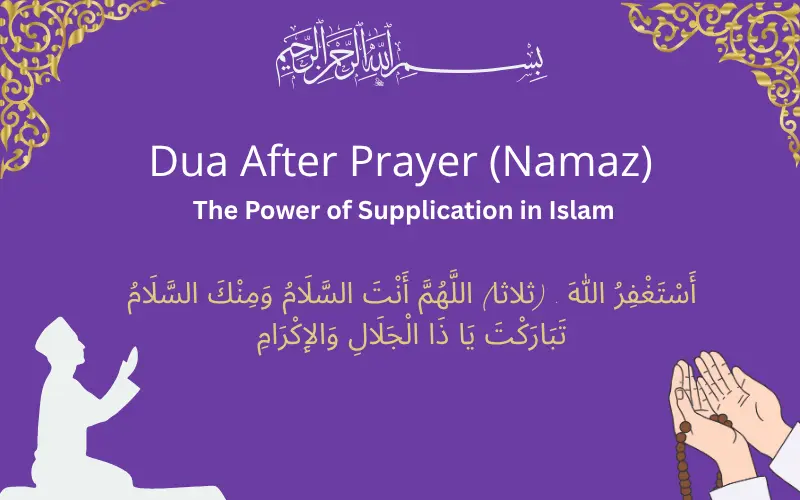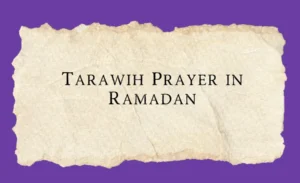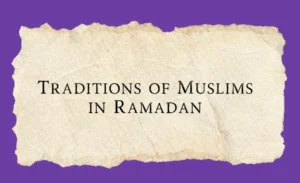In Islam, duʿāʾ (دُعَاء), prayer, or supplication holds a sacred place as the most direct and personal form of communication with Allah (الله). After completing the structured act of Ṣalāh (صلاة), the heart is spiritually open and more attuned to divine presence, making this moment ideal for sincere dua. The Prophet Muhammad ﷺ frequently made supplications after prayers, teaching that this is a time when the gates of mercy are wide open and Allah is especially responsive.
Unlike the ritualistic format of prayer, duʿāʾ is deeply emotional, often made in one’s own language, and covers both worldly and spiritual needs. This powerful practice reflects a believer’s humility, dependence on Allah, and hope in His mercy and wisdom, reinforcing the essence of Tawḥīd (توحيد), the Islamic belief in the Oneness and sovereignty of God.
What Is Dua and Why Is It Important After Prayer?
In Islam, duʿāʾ (دُعَاء), meaning supplication, invocation, or personal prayer, is one of the most powerful acts of spiritual connection between a servant (ʿabd – عبد) and their Lord (Rabb – رب). While Ṣalāh (صلاة), the formal, obligatory prayer, is structured and time-bound, duʿāʾ is deeply personal, heartfelt, and spontaneous.
Making dua after prayer is a Sunnah practice of the Prophet Muhammad ﷺ and is highly recommended in Islamic tradition. It is a time when a Muslim is spiritually elevated, sins are forgiven, and the heart is more inclined to sincerity and focus. This post explores what duʿāʾ after namāz is, how it is performed, examples of powerful duas, and its spiritual benefits.
What Is Namaz (Ṣalāh)?
Namaz is the Persian/Urdu term for Ṣalāh, the formal act of worship performed five times a day by Muslims. It includes physical movements, recitation from the Qur’an, and specific supplications. After concluding the prayer with Taslīm (تسليم), saying As-salāmu ʿalaykum wa raḥmatullāh, Muslims are encouraged to engage in duʿāʾ, the open and informal conversation with Allah.
Arabic: صلاة
Transliteration: Ṣalāh
Meaning: Prescribed ritual prayer
Why Make Dua After Prayer?
Making dua after prayer is a moment when the heart is most connected and open to Allah, enhancing the sincerity and acceptance of supplications. It is a Sunnah of the Prophet Muhammad ﷺ, who emphasized this practice as a way to seek forgiveness, guidance, and blessings. After prayer, a believer is spiritually refreshed, making it the perfect time to ask for help and express gratitude. This strengthens one’s relationship with Allah and deepens faith.
Spiritual Readiness:
After completing the physical and verbal aspects of prayer, the heart is more receptive to divine presence. Scholars say the soul is “cleansed,” making duʿāʾ more impactful.
Sunnah of the Prophet ﷺ:
The Prophet Muhammad ﷺ often made duʿāʾ after prayers, especially after Fajr (dawn) and Maghrib (sunset) prayers. This makes it both a recommended (mustaḥabb – مستحب) and spiritually beneficial act.
Qur’anic Encouragement:
Qur’an 40:60 – “Call upon Me; I will respond to you.”
Arabic: ادْعُونِي أَسْتَجِبْ لَكُمْ
Transliteration: Uduʿūnī astajib lakum
How to Make Dua After Namaz
To make dua after namaz, first complete the prayer with the taslīm by turning your head right and left while saying “As-salāmu ʿalaykum wa raḥmatullāh”. Then, engage in dhikr by reciting phrases like Subḥānallāh, Al-ḥamdu lillāh, and Allāhu Akbar. Raise your hands with humility and begin your supplication by praising Allah and sending blessings on the Prophet ﷺ. Finally, sincerely ask for your personal needs, whether in Arabic or your native language. Here’s a brief list of steps to do it correctly:
1. Complete the Prayer with Taslīm (تسليم):
Finish the formal Ṣalāh by turning the head to the right and then left, saying:
“As-salāmu ʿalaykum wa raḥmatullāh” (السلام عليكم ورحمة الله) – Peace and mercy of Allah be upon you.
2. Engage in Dhikr (ذِكر – Remembrance):
The Prophet ﷺ recommended saying these phrases three times each:
- Subḥānallāh (سُبْحَانَ اللَّه): Glory be to Allah
- Al-ḥamdu lillāh (الْحَمْدُ لِلَّه): All praise is due to Allah
- Allāhu Akbar (اللَّهُ أَكْبَر): Allah is the Greatest
Then recite Āyat al-Kursī (Qur’an 2:255) for protection and blessings.
3. Raise Your Hands (Optional but Sunnah):
Raise your hands with palms facing upward. This posture reflects humility and need.
4. Start With Praise and Salawat:
Praise Allah: Al-ḥamdu lillāh rabbil-ʿālamīn (All praise is due to Allah, Lord of the worlds)
Send blessings upon the Prophet by reciting Salwat:
“Allāhumma ṣalli ʿalā Muḥammad wa ʿalā āli Muḥammad…”
5. Make Your Personal Duas:
Ask for forgiveness, guidance, health, provision, and protection from evil. You may pray in Arabic or your native language; both are valid.
Types Of Dua (Prayer) You Can Make After Namaz
After namaz, you can make various types of dua (supplications) depending on your needs and intentions. Here are some common types:
- Dua for Forgiveness (Istighfār – استغفار): Asking Allah to forgive your sins and shortcomings.
- Dua for Guidance (Hidāyah – هداية): Seeking Allah’s direction in life decisions and righteous paths.
- Dua for Protection (Ḥifẓ – حفظ): Requesting safety from harm, evil, and misfortunes.
- Dua for Health and Well-being: Asking for physical and spiritual health for yourself and loved ones.
- Dua for Provision (Rizq – رزق): Seeking halal (lawful) sustenance and abundance.
- Dua for Gratitude (Shukr – شكر): Thanking Allah for His countless blessings.
- Dua for Strength and Patience (Ṣabr – صبر): Requesting perseverance during difficulties and trials.
- Dua for Family and Community: Praying for the welfare, unity, and guidance of family, friends, and the Muslim community.
Making different types of dua after namaz helps nurture a well-rounded spiritual connection with Allah.
Examples of Powerful Duas After Prayer
Powerful duas after prayer often begin with praising Allah and sending blessings on the Prophet Muhammad ﷺ. Examples include the comprehensive forgiveness dua: “Allāhumma anta as-salām wa minka as-salām…” meaning “O Allah, You are peace, and from You is peace.” Other common supplications ask for guidance, sustenance, and protection, reflecting deep humility and trust in Allah’s mercy and power. These duas strengthen the believer’s connection with the Divine and bring spiritual comfort.
Comprehensive Forgiveness Dua:
اللَّهُمَّ أَنْتَ السَّلَامُ وَمِنْكَ السَّلَامُ، تَبَارَكْتَ يَا ذَا الْجَلاَلِ وَالْإِكْرَامِ
Allāhumma anta as-salām wa minka as-salām, tabārakta yā dhā al-jalāli wa al-ikrām
Meaning: O Allah, You are peace, and from You is peace. Blessed are You, O Possessor of Glory and Honor.
Dua for Guidance and Sustenance:
اللَّهُمَّ اكْفِنِي بِحَلَالِكَ عَنْ حَرَامِكَ وَأَغْنِنِي بِفَضْلِكَ عَمَّنْ سِوَاكَ
Allāhumma ikfinī bi-ḥalālik ʿan ḥarāmik wa aghninī bifaḍlika ʿamman siwāk
Meaning: O Allah, suffice me with what You have made lawful over what You have made unlawful, and enrich me by Your bounty over all others.
Dua for Family and Community:
رَبِّ اجْعَلْنِي مُقِيمَ الصَّلَاةِ وَمِنْ ذُرِّيَّتِي
Rabbi ajʿalnī muqīma aṣ-ṣalāti wa min dhurriyyatī
Meaning: My Lord, make me an establisher of prayer, and from my descendants as well. – (Qur’an 14:40)
Best Times for Dua (According to Sunnah)
According to the Sunnah, the best times for dua include after the obligatory prayers, during sujūd (prostration), in the last third of the night, and between the adhan and iqamah. Fridays, especially the last hour before Maghrib, and while fasting or breaking the fast, are also highly recommended moments. These times are when Allah’s mercy is most accessible, and duas are more likely to be accepted. Here are some times that are considered best for prayer (dua) after namaz:
- After fard (obligatory) prayers, especially Fajr and Maghrib
- During Sujūd (prostration) in prayer
- On Fridays, especially before Maghrib
- During the last third of the night
- After completing Qur’an recitation
- While fasting and before breaking the fast
Common Mistakes in Dua After Namaz (and How to Avoid Them)
Common mistakes in dua after namaz include rushing through supplications without focus, relying only on memorized phrases, and skipping praise of Allah and blessings on the Prophet ﷺ. To avoid this, approach dua with the presence of heart, personalize your requests, and begin by glorifying Allah and sending ṣalawāt (صَلَوَات) upon the Prophet. Below are some common mistakes and how to avoid them:
| Mistake | Correction |
| Rushing through dua without reflection | Take a moment to pause, focus, and feel. |
| Repeating memorized duas mechanically | Mix memorized duas with heartfelt, personal supplications. |
| Believing that dua must only be in Arabic | Duas in any language are accepted, and sincerity is key |
| Not starting with praise or salawat | Begin by praising Allah and sending blessings on the Prophet ﷺ |
Benefits of Dua After Namaz
Dua after Namaz strengthens a Muslim’s spiritual connection with Allah, fostering inner peace and humility. It opens the door to divine mercy, forgiveness, and guidance, while also providing emotional relief, clarity, and hope in daily life. Consistently making dua after prayer deepens mindfulness and enhances the overall sincerity of worship. Here are some notable benefits:
- Strengthens the spiritual bond with Allah
- Increases sincerity and humility
- Provides protection against daily challenges and evil
- Relieves stress, grief, and anxiety
- Leads to increased focus and khushūʿ (خشوع – humility) in future prayers
Conclusion
Dua after namaz is more than a ritual, it is a personal, sacred moment with your Creator. It transcends language, nationality, and background. In a world of distractions, supplication is the Muslim’s sanctuary, a moment of peace, purpose, and closeness to Allah.
Whether you’re asking for something worldly or spiritual, never underestimate the power of sincere dua after salah. For it is in those quiet moments, hands raised and heart open, that destinies are shaped and hearts are healed.
“Verily, your Lord is shy and generous. He is shy that when His servant raises his hands to Him (in supplication), He would turn them away empty.” – (Hadith – Tirmidhi)






